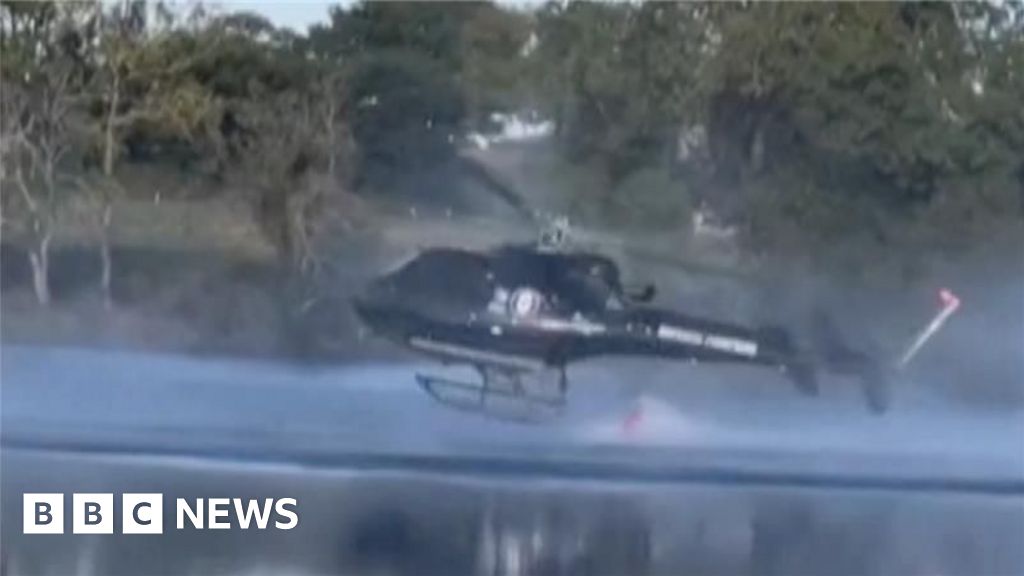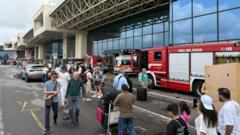Wildfires in Manitoba have reached alarming levels, prompting the province to declare a state of emergency for the second time this year. As of Friday, over 100 active wildfires were reported, scorching approximately 2.5 million acres of land—signifying the most extensive wildfire damage the region has seen since 1994.
With rising temperatures exacerbating the severity of the wildfire season, provincial officials disclosed at a recent briefing that uncontrolled blazes affected numerous communities. The prime concern was the urgent need to evacuate thousands of residents to ensure their safety. "This latest state of emergency is a necessity for us to access more facilities for sheltering the many Manitobans compelled to flee their homes due to these raging wildfires," said Premier Wab Kinew.
In the past few days alone, nine communities, including the town of Snow Lake and the Garden Hill First Nation, have issued mandatory evacuation orders. Reports indicate that over 4,000 residents from the Garden Hill reservation were relocated to larger facilities in Winnipeg, such as the Billy Mosienko Arena and the RBC Convention Center. To assist with the evacuation process, the federal government deployed an air force plane.
American responders have also joined the effort, with firefighters from the U.S. providing support on the ground in Manitoba. Premier Kinew addressed the political ramifications of the wildfires in a recent statement, condemning U.S. congressional members who sought to politicize the emergency after they wrote a letter prompting the Canadian government to address the fires causing smoke to drift across the border. He remarked, “When we’ve experienced loss of life in our province, such exploitation of a natural disaster is what disenchants the public from politics.”
This declaration of emergency follows an earlier one in May, which was prompted by the fires that resulted in fatalities and forced 30,000 people from their homes across Manitoba and neighboring Saskatchewan. The ongoing disaster highlights the growing challenges of climate-related events in the region, emphasizing the need for cooperative responses and clear communication in crisis management.
With rising temperatures exacerbating the severity of the wildfire season, provincial officials disclosed at a recent briefing that uncontrolled blazes affected numerous communities. The prime concern was the urgent need to evacuate thousands of residents to ensure their safety. "This latest state of emergency is a necessity for us to access more facilities for sheltering the many Manitobans compelled to flee their homes due to these raging wildfires," said Premier Wab Kinew.
In the past few days alone, nine communities, including the town of Snow Lake and the Garden Hill First Nation, have issued mandatory evacuation orders. Reports indicate that over 4,000 residents from the Garden Hill reservation were relocated to larger facilities in Winnipeg, such as the Billy Mosienko Arena and the RBC Convention Center. To assist with the evacuation process, the federal government deployed an air force plane.
American responders have also joined the effort, with firefighters from the U.S. providing support on the ground in Manitoba. Premier Kinew addressed the political ramifications of the wildfires in a recent statement, condemning U.S. congressional members who sought to politicize the emergency after they wrote a letter prompting the Canadian government to address the fires causing smoke to drift across the border. He remarked, “When we’ve experienced loss of life in our province, such exploitation of a natural disaster is what disenchants the public from politics.”
This declaration of emergency follows an earlier one in May, which was prompted by the fires that resulted in fatalities and forced 30,000 people from their homes across Manitoba and neighboring Saskatchewan. The ongoing disaster highlights the growing challenges of climate-related events in the region, emphasizing the need for cooperative responses and clear communication in crisis management.




















